This week’s blog content is brought to you by ALL the books! I read more than twenty of them in the past month, so once again I’m splitting up my reviews among three Quick Lit posts—starting with today’s! As you’ll see, a lot of these books were atypical picks for me, but I was glad to have been stretched a little out of my reading comfort zone.
The Readers of Broken Wheel Recommend, by Katarina Bivald: Despite a large age difference and homes that are continents apart, Sara and Amy have become the best of friends, bonding through their letters to one another over their shared passion for books. Never mind that the two women have never met. When Sara’s job at a bookstore comes to an end, she decides to leave her home in Sweden for a visit with Amy in Broken Wheel, Iowa. But Sarah arrives to discover that she is too late—Amy has passed away.
Instead of returning home, Sara decides to stay in Broken Wheel and open a bookstore in her friend’s memory. She is determined to make Broken Wheel a town of readers. But she has her job cut out for her: though the townsfolk like Sara herself, they aren’t a fan of her books and don’t trust the “new-fangled ideas” she’s introducing to the conservative town. But Sara’s read enough fairytales to know that there’s power in fiction, and the gift she’s bestowed upon the town is about to do its magic.
By now you have probably picked up on how much I love books about books. In fact, I don’t know of many avid readers who aren’t a fan of this genre. There’s plenty of book talk here, and I love these discussions, particularly those shared between Amy and Sara in their letters that predate Sarah’s visit to Broken Wheel. I was familiar with most of the books that are referenced, but this book piqued my interest in some new titles as well.
Much to my disappointment, I didn’t really love much else in this book. The premise is great, but the characters felt sterile to me, and after a strong start, the story followed too many predictable paths. My biggest qualm was the portrayal of Americans (and particularly Christians) as uneducated, close-minded, homophobic, and bigoted. Sara, in contrast, is seen as a progressive and compassionate savior, come to rescue the town from the “Dark Ages.” (One way she does this is by introducing gay erotica in her bookshop; it works to shake things up, but I’m sure there are other forms of equally powerful literature that could have had the same effect.) The book is written by a Swedish author, and I have no doubt that many Europeans share her dim views of Americans; it’s unfortunate that books like this one feed into that stereotype.
My Rating: 2.5 stars.
The Selection, by Kiera Cass: What would the book of Esther look like if it was set in a Hunger Games-like future dystopia? The Selection paints that very scenario, with elements of The Bachelor and Cinderella thrown in.
America Singer (let’s all take a moment to roll our eyes at that name, shall we?) is a lowly Five (the “artist” caste) in the multi-caste society of Illéa. When a competition is held to select a bride for Illéa’s prince Maxon, America reluctantly agrees to enter her name. Her selection as one of the 35 potential brides would rescue her family from poverty, but it would also mean separation from America’s secret boyfriend, Aspen.
Much to her surprise, America finds herself catapulted into the limelight and into the prince’s graces when she is selected and moved into the palace for the competition. Though she has no desire to win Prince Maxon’s heart, the two develop a special friendship, and she begins to question her plans, her future, and her own heart.
This isn’t a book I would have picked up on my own: despite the beautiful cover, the simplistic premise held almost no appeal to me. However, when Sherry raved about the series on a recent podcast episode, I thought I might as well give it a try. . . . and I don’t regret it!
Is this book high literature? Far from it. Is it an original story, or creatively told? Not at all. But did I close out the book with plans to immediately continue with the series? Affirmative. (Evidenced below.) I’m embarrassed to admit how much I enjoyed this. I couldn’t keep from nitpicking the entire plot, characters, everything. So many clichés. So much predictable drama. But it all was addictively entertaining (as episodes of The Bachelor undoubtedly are for the show’s millions of fans), and I was left dying to find out what would next!
My Rating: 3.5 stars.
(Note: if you plan to read this series and haven’t read Book One yet, don’t read the following review, as it will give away many plot points of The Selection.)
The Elite, by Kiera Cass: Well, darn! After my enjoyment of the first book in this series, I (literally) couldn’t wait to continue reading. The Elite picks up right where The Selection left off: the competition for Prince Maxon’s heart has grown more intense, with the original pool of 35 girls now narrowed down to just six. America is still in the game, and she must decide whether she is loyal to the prince or to Aspen, her first love.
My biggest qualm with this book is that almost nothing happens in it to drive the story forward; it definitely feels like an unnecessary placeholder between the first and third installments. I also had a very hard time understanding the characters, whose actions and decisions did not line up with who they were shown to be in The Selection. America in particular drove me a bit crazy; every time I started to like her, she would do or say something dumb! And her vacillating emotions grew exhausting, especially since her fickle heart provides nearly all of the book’s “dramatic tension.”
My Rating: 2 stars.
(Spoiler Warning: As noted with the previous review, don’t read further if you haven’t read books One and Two of the series and plan to. This review will give key plot points away.)
The One, by Kiera Cass: America Singer never thought she would leave behind her lowly life as a poor performer. Now she is living in a palace, competing for the heart of a man who could become her husband. As the competition nears its end, America has made her decision about the outcome she hopes to achieve. But it is growing apparent that more than her future is at stake; the future of her nation also rests in the balance, and America is now in a fight for not just her love, but her life.
Though Book Two of the series left MUCH to be desired, I couldn’t not continue with this series and immediately jumped into the The One. This third book provides a satisfying conclusion to the trilogy, with much more heart and many more plot twists than either of the previous books. The One is a lot steamier than the other two (unfortunate, since the lack of sex and language was one of the series’ strongest assets for me), and the writing still isn’t great. But I was glad to have answers and intrigue, and even a few plot twists I wasn’t expecting.
There are more books in this series, but The One provided enough resolution for me to feel okay with abandoning the series, at least for now. There are too many other great books vying for my attention!
My Rating: 3 stars.
Heartburn, by Nora Ephron: I’ve heard Nora Ephron’s name a lot, but had little familiarity with her work (other than a few of her movies, which have been hit or miss for me). I wouldn’t have considered reading this book, except that Anne Bogel featured it on a recent roundup of must-listen audiobooks; when I saw that it was narrated by Meryl Streep, I was sold.
The novel (which—shockingly—is largely autobiographical) tells the story of Rachel Samstat, a food writer whose second marriage falls apart when she discovers that her husband is having an affair (despite the fact that the couple has a child together, and another baby on the way). I had no idea a book about an imploding marriage could be funny, but this definitely is. Rachel’s narration is smart, sassy, and at times quite poignant, reflecting the mixture of betrayal and resignation Ephron must have felt at the demise of her own marriage. Some of the marriage ranting gets a bit tedious but it does add to the story’s authentic tone.
The book was published in the 1980s, but feels remarkably current. The recipes scattered throughout the narration are a nice touch, and Meryl’s reading is fantastic (but how could it not be?).
My Rating: 3.5 stars.
Conscience of a Conservative: A Rejection of Destructive Politics and A Return to Principle, by Jeff Flake: I have enough internal drama that I don’t really want to subject myself to drama at the national level too—at least not all the time. Consequently, I generally steer clear of political books; my reading time is meant to be rejuvenating, and politics provide the opposite of soulful restoration. My biggest hangup with books addressing contemporary politics is their reactionary nature: books written during the immediate aftermath of policy change lack the calming effect of hindsight, and common sense is frequently sacrificed at the alter of literary “click bait.”
All of that is simply to say that this isn’t a book I would typically read, but the title caught my eye while perusing the available Audiobooks on OverDrive, so I thought I’d give it a chance. I knew nothing of the author, though a quick Google search before downloading told me that he is now is a Republican Senator from Arizona, a practicing Mormon, and one of the few Conservatives that spoke out against Donald Trump in the last election.
In Conscience of a Conservative, Flake provides a solid definition of Conservatism and takes his party to task for neglecting their principles in recent years. Integrity and morality have become casualties of the political game, and Flake chastises Conservatives for embracing nationalism, xenophobia, and other less-than-favorable qualities that have come to define the Trump administration.
I admire Flake’s integrity and willingness to take a stance against his own political party (admittedly less bold given the lackluster reputation of our current president, but still admirable). As a rather disgruntled and disillusioned Conservative myself, this book helped me understand what it means to be a conservative, and validated my experience—my inability to see my own values reflected in the current Republican Party doesn’t mean I’m crazy!
I agreed with many of Flake’s points, particularly his belief that we should focus on political candidates’ policies instead of becoming distracted by bizarre conspiracy theories or stooping to groundless attacks on a candidate’s character. (Although Flake does contradict himself a bit on this one when voicing his opinions of President Trump). While Flake and I don’t see eye-to-eye on every policy, I certainly appreciated his fact-based approach, his adherence to his own convictions, his appeals to kindness and common sense over blind partisanship, and his willingness to own his own past mistakes.
This book offers few answers, but it does raise some very important questions. I wonder what readers will think of this book and its ideas in ten or twenty years.
My Rating: 3.5 stars.
Lots of Candles, Plenty of Cake: A Memoir of a Woman’s Life, by Anna Quindelin: I haven’t read anything else by Anna Quindlen, but this memoir caught my attention. (That’s happened quite frequently for me in the last couple of years; I apparently love reading female novelists’ nonfiction more than the books they are known for.) In this book, Quindlen reflects on life as a woman, specifically a woman in her sixth decade of life. In essays on everything from faith to solitude, she shares from her experiences of motherhood and of aging, of learning to appreciate her female friends, and of coming to terms with her face, her womanhood, and even her mortality.
Quindlen’s tone is straightforward but reassuring, infusing the grittiest aspects of the human experience with her own brand of wry humor. In areas of politics and faith, Quindlen and I couldn’t be more different (and some of her proselytizing on these subjects grated on me a bit), but I found myself relating to many of her emotions and general views on life.
I was intrigued by Quindlen’s experiences as a working mom at a time when that was considered a countercultural life choice, and I particularly appreciated her thoughts on the passage of time and the gifts of wisdom and acceptance that come with age. I read a few reviews containing sentiments along the lines of “this book is great for older women” or “I would like this book if I were in my 60s”. However, as a 34-year-old woman myself, these are still subjects I think about a great deal, and I find it comforting to hear from women who are a little further ahead in their journey, and are thriving.
I wasn’t quite as impressed with this book as I was with Dani Shapiro’s very similar Hourglass, but it’s still a strong memoir that left me with a lot to reflect on.
My Rating: 4 stars.
This Is Where You Belong: Finding Home Wherever You Are, by Melody Warnick: Until two years ago, I’d never given much thought to Place Attachment (the quality of loving where you live and feeling like you belong there). My ignorance to not just the term, but also the concept, was likely due to having lived within the same county for my entire life (excepting my first year, when I lived one county away). Then our little family of three uprooted our lives and moved to a new state. Suddenly I was thinking about home and place in a whole new way.
Like me, Melody Warnick spent her childhood on single cul-de-sac in Orange County, California. But unlike me, her adult life was spent moving from state to state. She writes, “I’d come to see each new city in a new state as an irresistible blank slate. Moving offered absolution for whatever failures I’d amassed in my present town.” When Melody and her family found themselves in yet another new town, she decided it was time to stop running and start loving her home. After conducting some research, she compiled a list of proven “place attachment behaviors” that would help her put down roots in Blacksburg, Virginia. Over the next couple of years, she did things like walking more, buying local, and getting involved in local politics; along the way she learned what it did and didn’t mean to become place-attached, arriving at some surprising new beliefs and feelings towards her home.
With its classification as an experimental memoir (one of my favorite genres), its in-depth research, and its profusion of fascinating statistics (I LOVE statistics!), I was predisposed to like this book; the connection to my own place-attachment journey were an added bonus. (It was especially fun to hear Warnick’s discussions of Orange County and Austin, Texas, two home towns we have shared). Unfortunately the book is weighted down by personal interest stories; these do relate to the subject matter, but there are far too many of them and they overshadow Warwick’s own story (which ends up being a very small portion of the narrative). Warnick’s background is as a freelance journalist, and too much of the book reads like a series of Reader’s Digest articles. (I love Reader’s Digest, but I want a bit more depth from my memoirs).
That said, if you are moving to a new place and hoping to establish some roots, I highly recommend this book, even if you just skim the stories. The checklists at the end of each chapter provide a treasure trove of ideas for helping you learn to love your home!
My Rating: 4 stars.
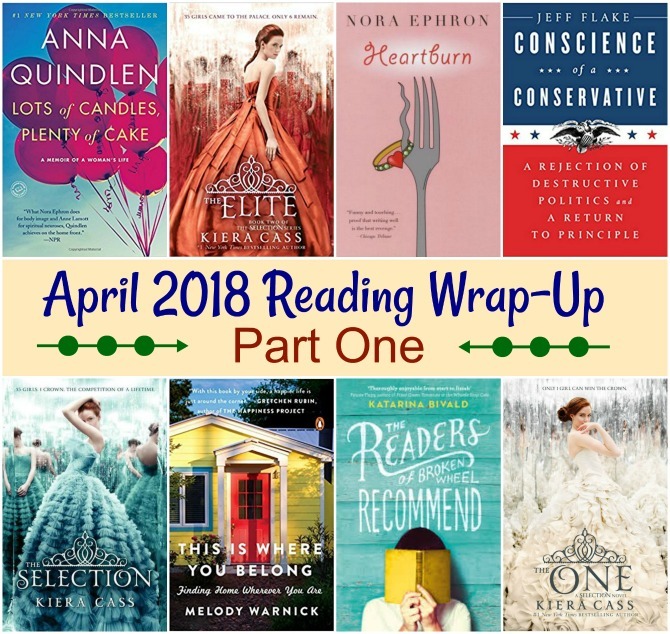
Have you read any of these books? I’d love to know what you thought!
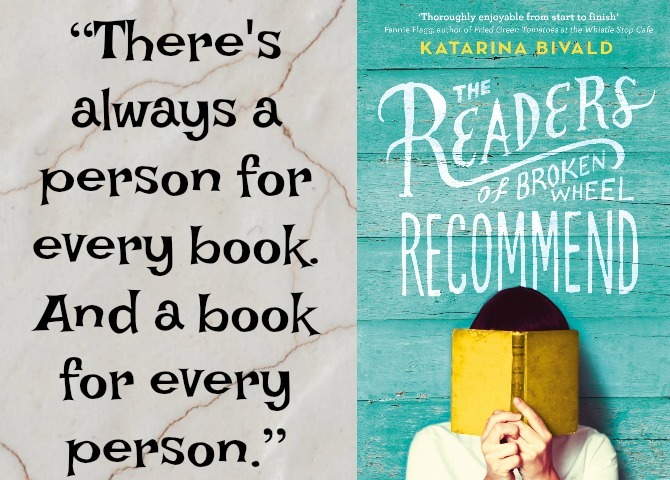
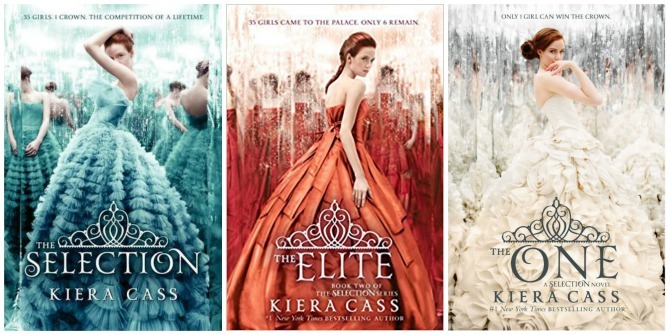
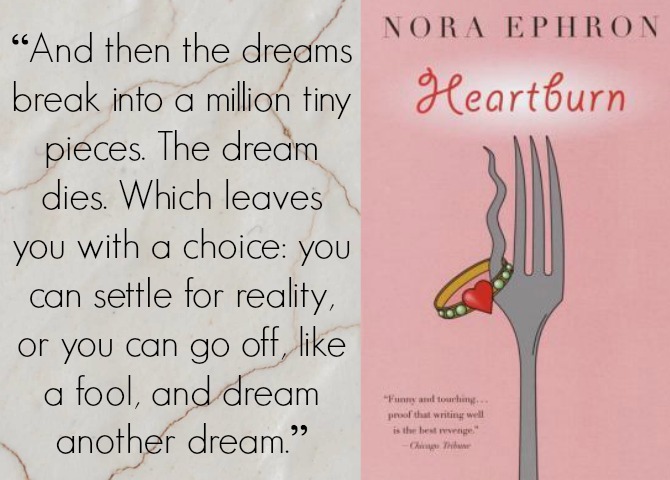
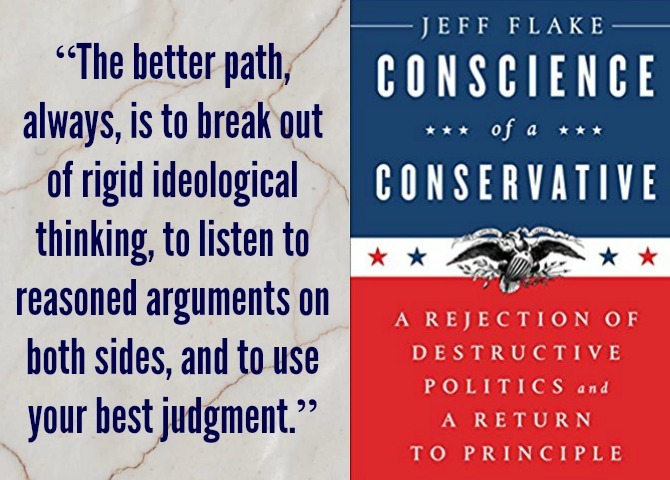
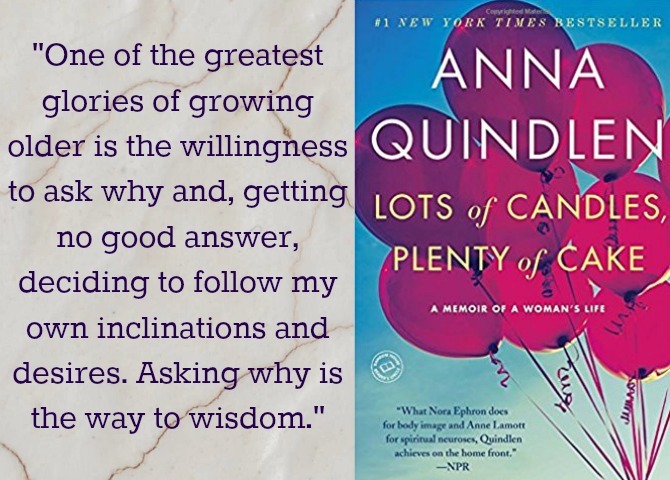
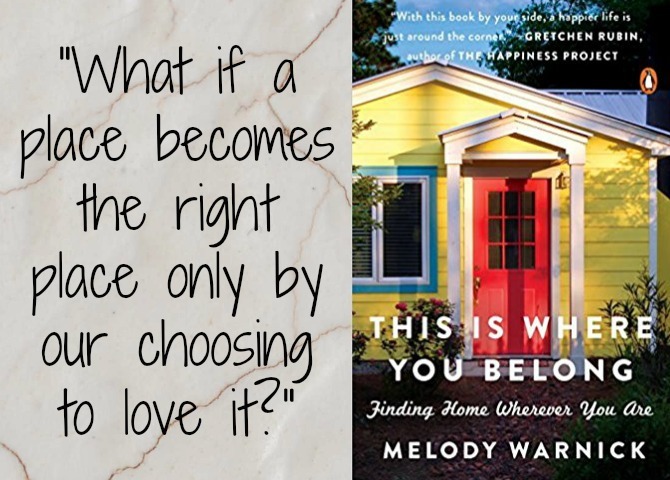
[…] reading lately. If you’re here from the linkup, thanks for stopping by! Be sure to check out Part One of this month’s reviews. . […]
[…] case you missed it, be sure to check out Monday’s Part One of this month’s book […]